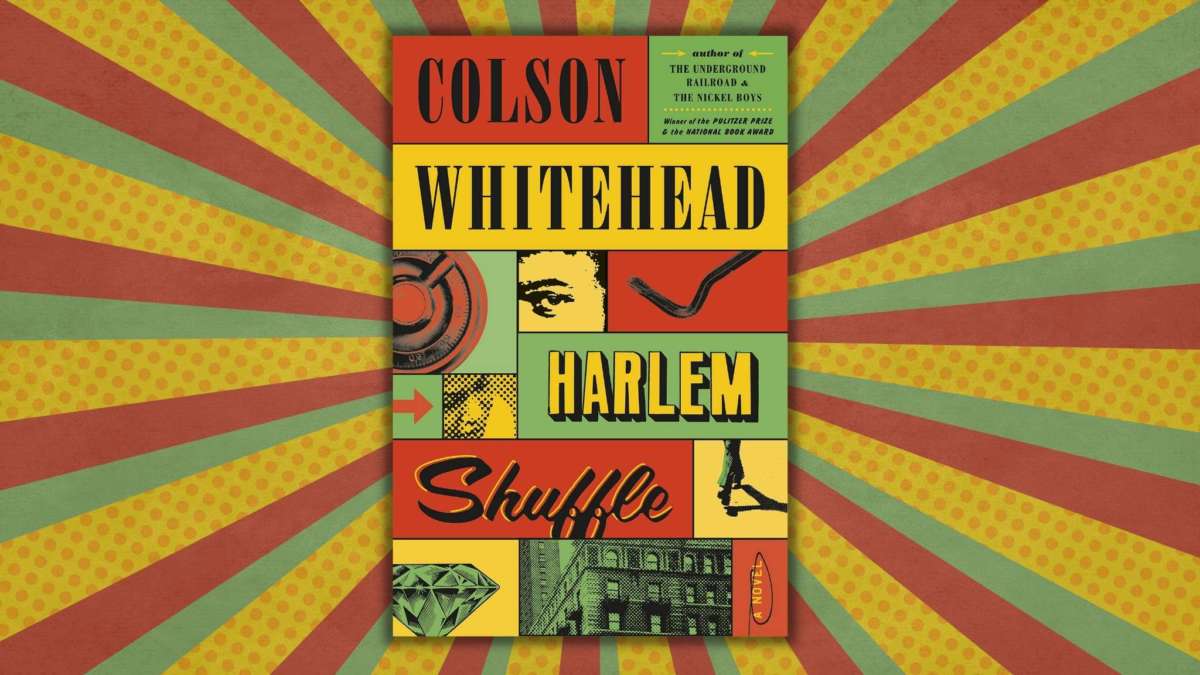Harlem Shuffle
Colson Whitehead embarks on a double-sided exploration of 1960s Harlem in his latest work of fiction, Harlem Shuffle (Doubleday). For a Black man trying to survive and keep his furniture business afloat in tumultuous times, Ray Carney finds that street smarts are just as important as his college degree. Balancing a double life as a family man and a hustler proves to be as challenging as navigating the great promise and potential danger of New York City in the sixties and seventies. When a heist goes wrong, can Ray keep the truth from his wife and children and still come out on top?
Winner of two Pulitzer Prizes and a National Book Award, Colson Whitehead’s previous titles include bestsellers The Underground Railroad and The Nickel Boys. His affinity for telling stories that expose deep cracks of racism in our most cherished cities and beloved freedoms has garnered him attention on a much larger scale than most contemporary writers. In recent years, he has appeared on the cover of TIME Magazine and was even interviewed on the television show 60 Minutes. Whitehead is a rare example of a talented artist who has achieved both a large popular audience and critical acclaim. He continues to gain momentum with vivid storytelling and characters that live, breathe and bleed on the page.
Harlem Shuffle drops the reader on the sidewalk just outside of Ray’s furniture store in Harlem. This immersive, carefully detailed environment is one of the more striking points of the book as readers travel through various parts of the neighborhood. Whitehead spent hours reading through newspaper archives for articles and advertisements from the period to help him achieve an accurate and realistic setting — and it shows. He includes brand names of furniture and even describes upholstery patterns that were trendy during the 1960s, making it easy for the reader to envision the colors and textures of the store where much of the story unfolds.
Ray does whatever he needs to provide for his family, refusing to be dragged under by currents of economic pressure and rising tides of racial inequity. When a particularly troublesome cousin surfaces with a chance to make extra cash, Ray ventures into the world of crime, making himself an accomplice to armed robbery. Their first heist is another highlight of the book, rendered in meticulous detail. Descriptions of the wood trim in the hotel lobby, the careful coordination of each member of the gang, and the limited, nervous dialogue between the perpetrators make this scene particularly memorable. After one of their partners goes missing, his cousin skips town and Ray finds himself on the hit list of the most powerful men in the city, seeking revenge for what was taken from them.
This propulsive story will have you turning pages to see how it all plays out and leave you with a lot to consider long after you’ve finished. The author has a particular aptitude for depicting scenes of police brutality and including commentary on systemic racism of the era in a way that begs the question: how much has really changed in the last 60 years?
Like many of Whitehead’s previous books, Harlem Shuffle blends and blurs the lines of genre and literary fiction. Historical fiction meets crime-thriller. It’s a mystery with a deeper commentary on racism, social inequality and patriarchy, and perfect for those who enjoy a powerful story with a protruding vein of suspense. In this literary thriller, Whitehead has crafted yet another tale that can be read in just a few sittings but deserves to be revisited multiple times to unravel additional layers of complexity.
RELATED POSTS
Whitehead’s “The Nickle Boys” Captures Jim Crow-Era Florida
“The Underground Railroad” Is the Best Book of the Year — Maybe the Decade




